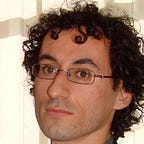South Africa: Freedom Day for whom?
Today is Freedom Day in South Africa, the celebration of the anniversary of the first democratic elections in 1994. As South Africans remember the day when the apartheid regime was finally ushered out of national government, everybody is aware that the legacy of colonialism and apartheid is alive and well.
President Ramaphosa has recently announced a $100bn foreign investment plan to kickstart growth and bring prosperity in the country. He remains true to his free market vision that led him to smoothly transition from anti-apartheid trade union leader to businessman-cum-politician. He called for police intervention to deal with miners in Marikana, which led to the massacre of 34 people on 16 August 2012 — a clear sign of where his loyalties lie.
Who will this injection of private capital benefit? Will workers and communities finally be able to secure decent wages and living conditions?
As Ramaphosa charms foreign investors and neoliberal governments abroad, new labour bills are under way to further erode workers’ rights, and institute a meagre minimum wage that is well below what is needed to guarantee a decent life to all South Africans. Ramaphosa is the key driver behind these reforms. On Wednesday, a general strike by workers affiliated with the new trade union federation Saftu brought South Africa to a standstill to protest against the new labour laws.
The 2019 general elections are just around the corner. Is Ramaphosa’s fit for office? It is no mystery that he has close ties with big capital — including family links with billionaire Patrice Motsepe and newly appointed Energy Minister Jeff Radebe. These business networks are closely integrated with big market players controlled by old white capital, and reach across Africa.
Zuma was brought down on arguments of “state capture” and collusion with Gupta’s business interests. Yet, Ramaphosa is connected to even more powerful business players, who supported a coordinated media campaign to bring him in as the “saviour” of South Africa.
This is part of a bigger regional effort to neutralise popular discontent with exploitative conditions imposed by big capital, and undermine attempts to implement serious redistributive policies.
The same interests support President Mnangagwa in Zimbabwe, while opposition leader Hakainde Hichilema is their man in Zambia, even as he loses consensus at the same time as his archrival President Lungu’s popularity sinks. Meanwhile, DR Congo plunges deeper into violence and instability, forgotten by the world. Western actors have a major responsibility: they are pushing against President Kabila, just as the Congolese government attempts to get a fair share of mining revenues from foreign investors.
The same interests dominate Africa’s mining economy, and use tax havens and European commodity markets to accumulate extraordinary profits. African workers and communities are left without the basics for healthy living, while European states militarise their borders and kill thousands of migrants and refugees in the Mediterranean.
On Freedom Day, it’s worth remembering that these are the powerful players that hail Ramaphosa’s policies, and try to manipulate South Africans into believing that big business will deliver them from poverty and discrimination.
